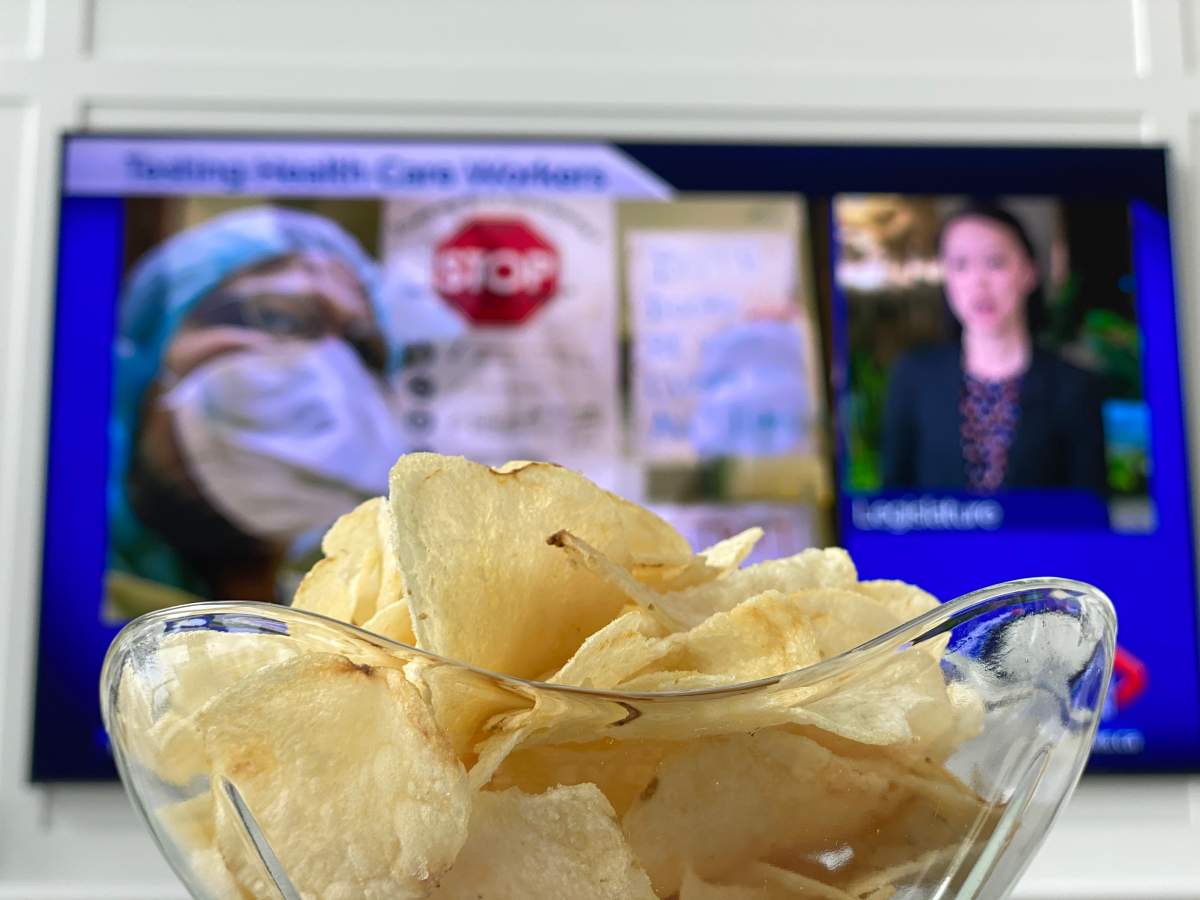Do you find yourself rifling through the kitchen lately, looking for something sweet or salty to nibble on while you watch the news?

And when you find it, do you end up eating a lot more than you intended?
It’s likely emotional eating. With COVID-19 forcing many of us to stay home while worrying about our loved ones, our finances and our future, some of us are turning to food for distraction and comfort.
READ MORE: Limit screen time during coronavirus outbreak, experts say
Watch below: Some Global News vidoes about stress related to the coronavirus pandemic.
Registered dietitian Lalitha Taylor teaches workshops on how to change our relationship with food. Global News asked her a few questions about how to gain control of compulsive snacking.

Get weekly health news
Global News: What is emotional eating and why might many of us be doing that right now?
Lalitha Taylor: Emotional eating means that you eat for reasons other than hunger. Is this wrong? No. We all emotionally eat-even dietitians. We all are more prone to emotional eating during this pandemic because we are faced with so many uncertainties that evoke so many feelings. Eating can be an easy way to diffuse uncomfortable feelings.
GN: Why don’t people emotionally eat salads?
LT: We are wired as humans to seek pleasure over pain. And this is one of the reasons we often don’t turn to salads when we’re upset-we seek foods that are highly palatable such as ice cream or chips. These foods activate the reward centres in our brain-they make us feel good! Turning to food can easily become a coping mechanism for individuals during this difficult time. However, the issue with turning to food to fill a void can become a highly addictive behaviour.
GN: What tips do you have for people who are finding themselves stuck at home, eating too much?
LT: I have five tips:
1. Eat to manage your body hunger. During times of stress, our eating pattern may change. Everyone is different; some people eat less or more during times of stress. Ensure you are still eating every three to five hours to ensure you are getting sufficient nutrients to manage your health. If you’re skipping meals, you could be more prone to more emotional eating or even binge-eating in the evening.
2. Be reflective of your mental and physical health. Are you doing healthy things to manage your stress, such as talking with a loved one or participating in activities that are relaxing or bring joy? Are you engaging in daily physical activity-such as a daily walk for at least 10-15 minutes?
3. Take a moment to be curious about why you are eating. Ask yourself, “How am I feeling in this moment? Will eating make me feel better?” These questions are not meant to be judgmental, but to determine what your emotions are and to figure out what you need to deal with those emotions.
4. Show compassion to yourself. Feeling guilt, shame or anger towards yourself may perpetuate your emotional eating. Instead, show yourself love and kindness. Know that you are not alone and seek help if necessary.
5. If you find that you need help, turn to a qualified registered dietitian or psychologist who has experience dealing with emotional eating and eating disorders.









Comments
Want to discuss? Please read our Commenting Policy first.